Armin Salek
Founder and Executive Director, Youth Justice Alliance
Fellow project website: www.youthjusticealliance.org
Armin’s high school legal clinics provide legal support where it is needed and give young people from overlooked communities the idea and belief that they, too, can pursue careers in law.
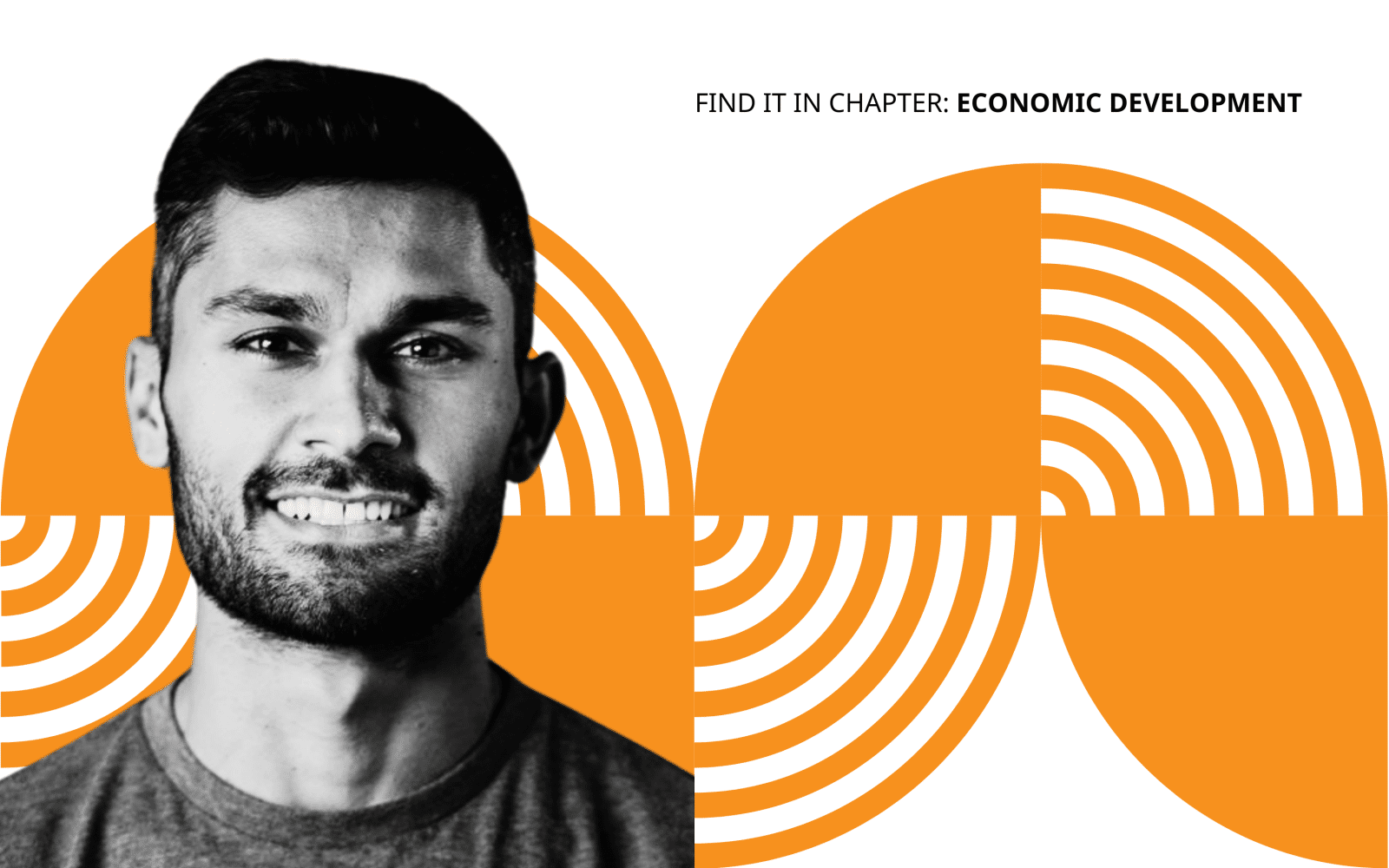
THE NEW IDEA
Armin uses the law to help young people find and share their power. Through his work developing legal aid clinics in Texas high schools, he has shown that young people can learn about the legal system and effectively address legal issues facing their families, friends, and neighbors. Their experiences learning and applying the law set many of his students on new paths toward careers in law, seeding change in the makeup of the profession.
While splitting his time between studying at law school and volunteering in high schools, Armin had an epiphany. He realized that he might be able to tap into the talents of high school students themselves to help legal literacy, knowledge, and power flow more equitably between the law profession and low-income, majority-minority communities. So, in 2017, while awaiting the results of his bar exam, he earned his teaching certificate and was licensed as an attorney and certified as a teacher in the same week. He then accepted a teaching position, and with a group of students from Akins High School in Austin, Texas, established the first high school legal aid clinic in the country. Diverse, talented, bilingual high school students from underrepresented communities, guided by a licensed attorney (Armin himself!), helped with cases, and in so doing were inspired to pursue legal careers themselves. Over the next few years, Armin and his students brought over $100,000 worth of free and transformative legal support to their community.
"To jump-start an interest in the law among young people who hadn’t been exposed to that career path, Salek created the Legal Eagle Internship at Austin’s Akins High School. It is the first high school legal aid clinic in the country.”
-Texas Standard
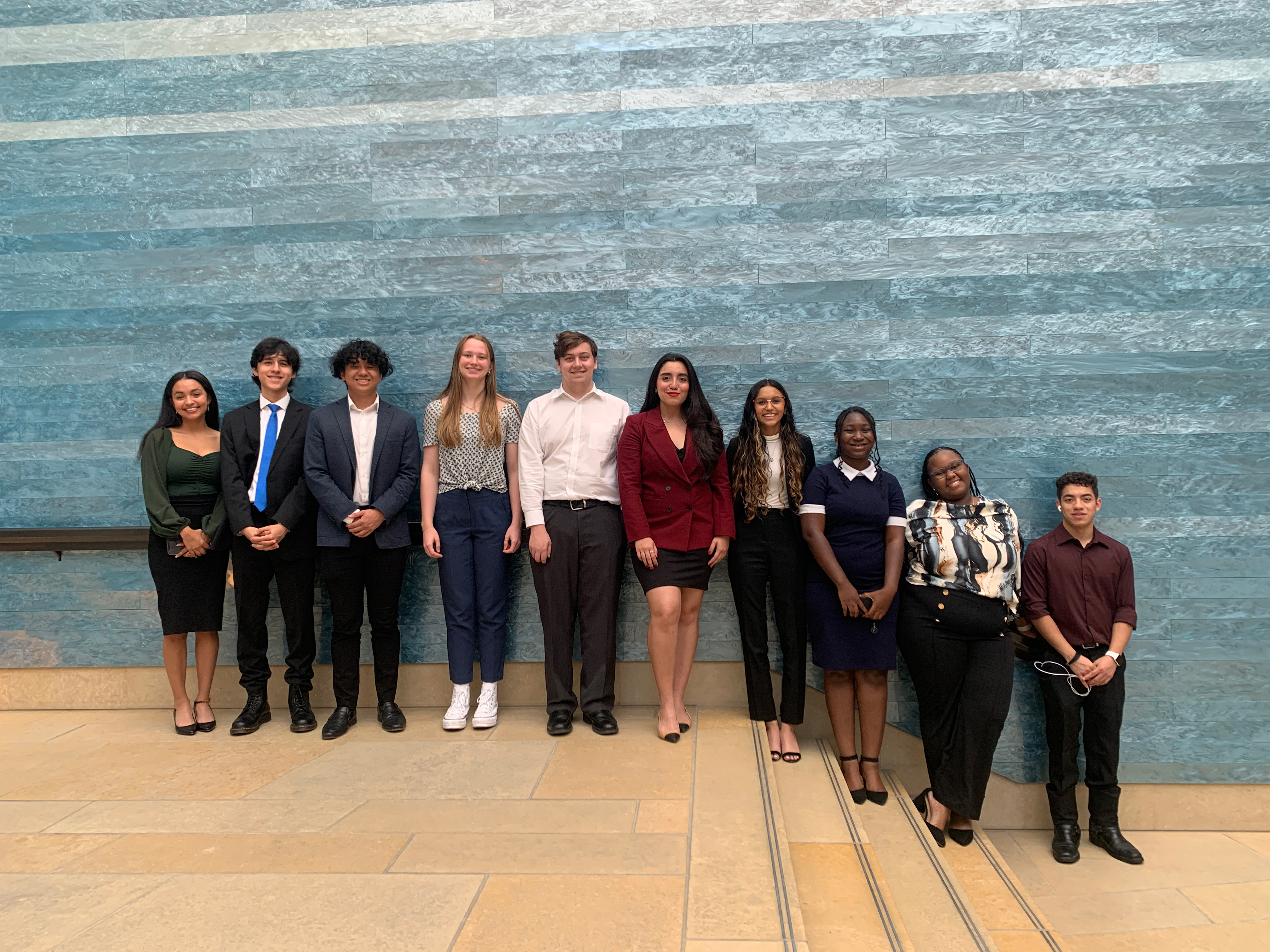
Armin is no longer in the front of the classroom, supervising that first legal clinic, or coaching Akins’ Mock Trial team. Today he leads the non-profit he founded, the Youth Justice Alliance, as the vehicle to spread this model -- first in Texas and then throughout the country. Toward that goal, Armin supports high school teachers and administrators through curriculum development, guidance, and support in making classes engaging, including by crafting new routes for law students, Bar Associations, and local law firms to connect with young people. Within ten years, he envisions school attorneys and legal clinics will be as ubiquitous as school counselors, and in the process will inspire young people from underrepresented backgrounds to pursue legal careers, transforming the demographics of the profession for good.
THE PROBLEM
Even though law shapes much of our lives, the legal landscape is hard for many to navigate. Widespread legal literacy is low. In terms of formal education, most people will experience no more than the occasional “Know Your Rights” campaign, with minimal impact. A 2019 survey from the American Bar Association found that only 5% of respondents could correctly answer basic civic questions about freedom of the press, due process, and citizenship.
When secondary schools do provide law courses or host mock trial teams, the classes and cases focus almost exclusively on criminal law. The emphasis often seems to be more about entertaining students than equipping them with knowledge of how the law works and how it shapes our lives.
One might argue that “how-to-fix-your-car literacy” or “computer hardware literacy” is also low, but repair shops can provide the needed know-how for reasonable fees. High costs and other barriers make legal services out of reach for low-income, minority, and immigrant communities in the United States. Retaining a lawyer for something as simple as a basic living will or a name change can easily cost more than a month’s wages. Families making less than $33,125 per year qualify for legal aid, but 86% of those who technically qualify for public defense or pro bono support report that they receive inadequate or no help at all. There are too few public defenders or legal clinics to meet the huge need, and there are huge linguistic and cultural barriers between lawyers and their clients. Indeed, the legal profession is the least diverse in the US, with 85% of all lawyers identifying as white.
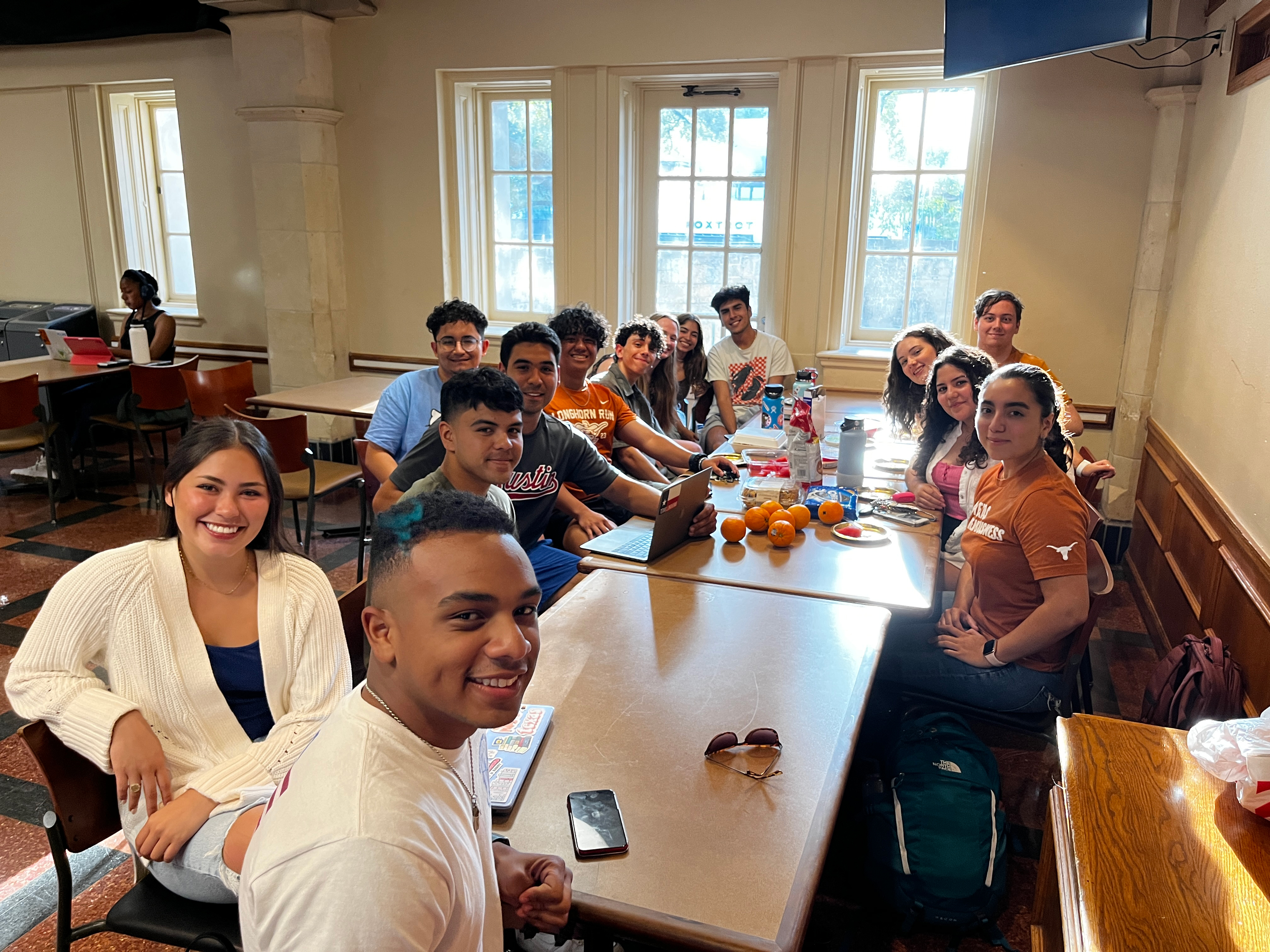
Photo Credit: Armin Salek
The legal profession has largely owned up to its diversity deficits, but its current strategies are insufficient. Diversity, equity, and inclusion efforts often focus on increasing the number of minorities on staff, so firms tend to focus on hiring law school grads from minority communities. Yet there are currently too few people of color graduating from U.S. law schools for the field overall to achieve meaningful representation.
Armin, a lawyer himself, immigrated to the US from Iran when he was a child. He believes we need to democratize the whole legal profession, starting with raising overall legal literacy levels and creating meaningful roles and futures for overlooked high school students in low-income, majority-minority schools.
THE STRATEGY
Early on, Armin realized that when our legal aid offices are overburdened or ill-equipped to serve diverse communities, we must at least empower people to stand up for themselves. In his capacity as a high school law teacher and coach for a mock trial team, he saw many untapped opportunities to do so. He pushed back against the superficial obsession with criminal law and saw his students come alive when digging into the legal issues that more directly affected them and their communities – for example, tenant law, employment law, family law, and immigration.
Since 2017, Armin has been fine-tuning a first-of-its-kind legal education course packed with meaningful content, including case studies that appeal to students’ interests, and images and videos of Black and Brown professionals engaging with the law. He provides practical materials that teach migrants, employees, tenants, and abuse survivors about their rights. Today the course is made available to all students in Texas as a virtual offering and can be easily adapted to be incorporated into other courses, like civics and history, since a stand-alone law course is often considered a luxury in under-resourced schools.
Armin has found his students eager to show up and engage deeply and authentically with the content he presents. They experience joy, purpose, and a sense of connection in their classrooms. As Armin puts it, he knows plenty of students who don’t care about grades or even about graduating, but he has met none who are unwilling to help their community or to step up when given an opportunity to serve. What shape did that opportunity take? Armin and one of his first classes at Akins launched the Akins Legal Aid Clinic, the nation’s first legal clinic staffed by high school students.
"Under Salek’s instruction and guidance, students work directly on legal cases that meet community needs. Students work directly with clients, while also learning about issues such as confidentiality, the role of attorneys, and how to build trust with a client, especially as a high school student.”
-University of Houston Law Center
Just like the law clinics that Armin worked in as a law student, this clinic was staffed by trained non-lawyers (high school students) and supervised by an attorney (Armin himself). Students had a clear sense of what types of cases they could tackle -- yes to expungements and name changes, no to death penalty defenses -- and their services were free to communities in need. It quickly became clear that this clinic was far more effective because the teenage legal assistants brought things that law-student-staffed clinics too often lacked: Language skills (in Spanish, French, Arabic, Tagalog, American Sign Language, and Mandarin), cultural competency, and community ties. To date, more than 2,000 students across Texas have been directly involved. They have helped faculty prepare living wills, secured green cards for school staff, and completed name changes for victims of domestic partner violence. They have provided more than $100,000 in value to their community.
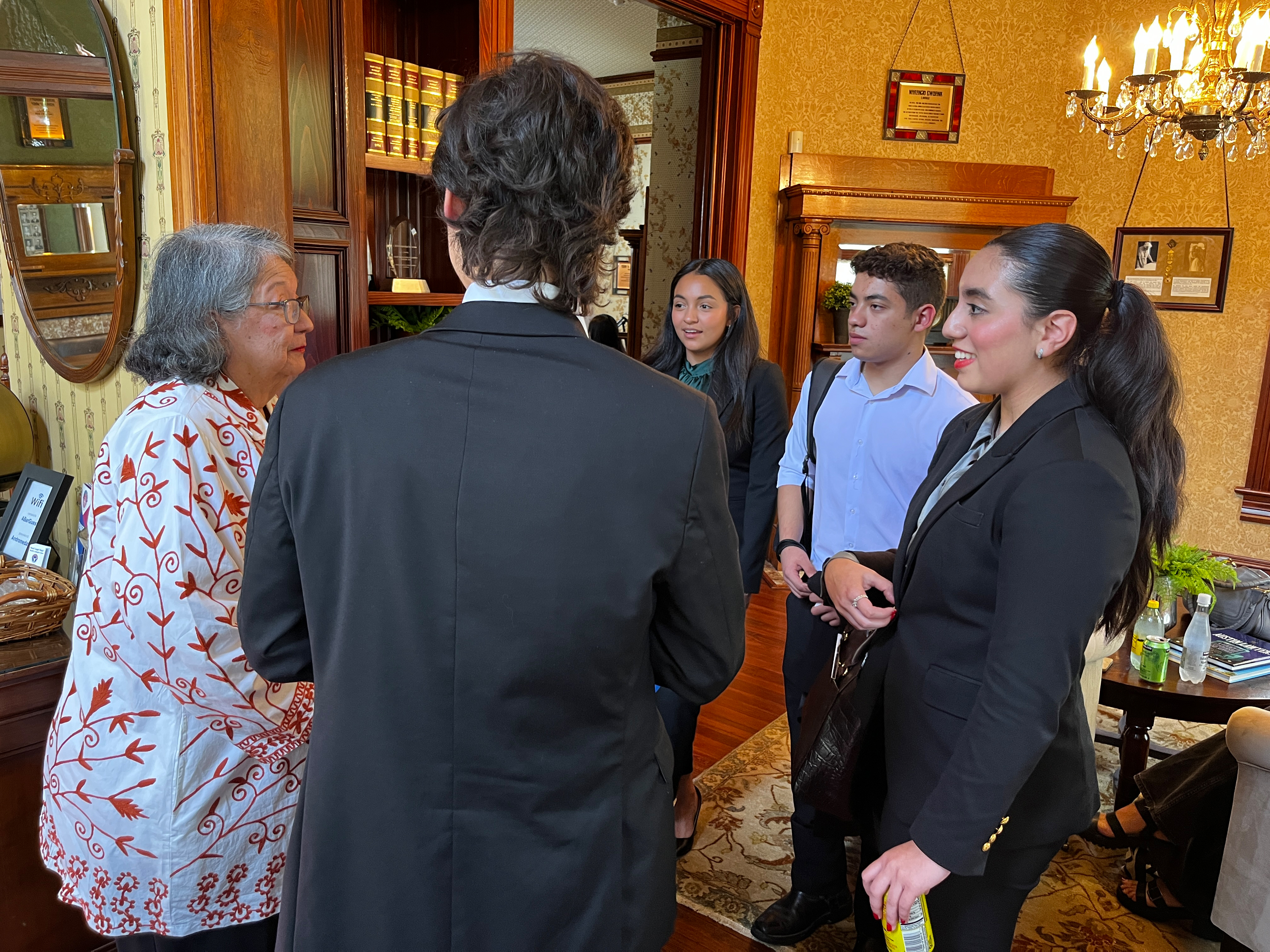
Photo Credit: Armin Salek
On top of feelings of pride and purpose, in exchange for their hard work, the students gain a rigorous grasp of the law, valuable mentorships, and institutional knowledge, all of which open doors toward possible professional careers. Armin’s Youth Justice Alliance also offers a four-year fellowship to a select group of highly motivated students, who get extra academic programming as well as hands-on experience in legal settings and access to adult allies already in legal professions. This programming is sponsored by local law firms who see the value in investing in their full talent pipeline. Even when young alumni don’t pursue legal careers, all leave with important information about their rights as tenants, students, employees, and migrants, as well as the transferable skills that will help them regardless of industry.
"With a focus on underrepresented populations and Title I Schools [the Youth Justice Alliance] works to ‘democratize the law by redistributing legal knowledge and legal power.’ It demonstrates the power of law as a pathway towards creating more equitable communities."
-Getting Smart
Armin works nationally with bar associations and law school alumni networks to see his model adopted, whether by a school (Akins High, with an attorney educator on staff, the Legal Justice course on offer, or a regular weekend legal clinic); in a city (Austin, where other schools offer the course and the Akins’ attorney supervises their legal clinics), or across a state (Texas, where the statewide curriculum is being finalized; where cities like San Antonio and Houston are developing their own clusters, and where state-wide associations and institutions are supporting the work).
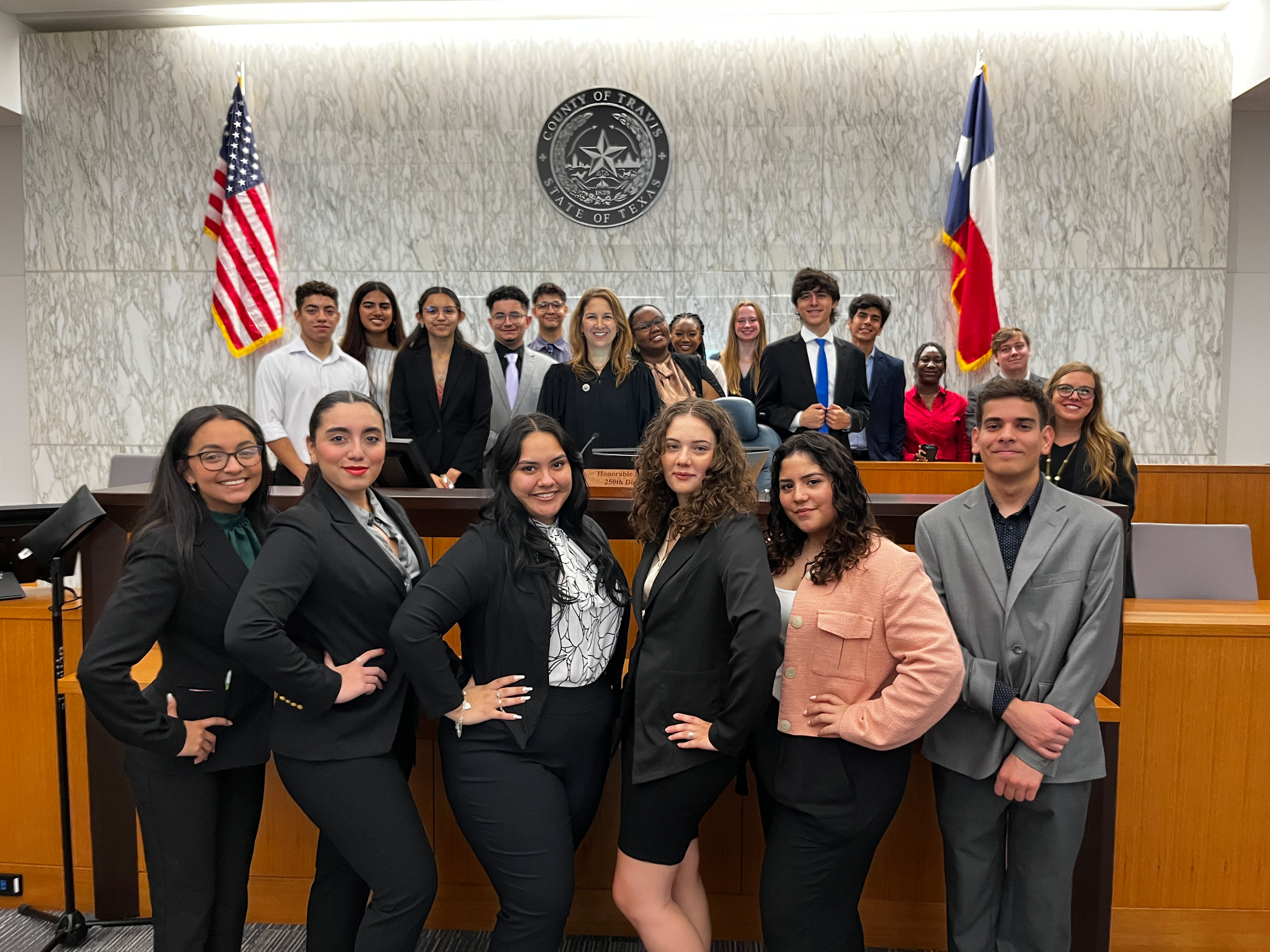
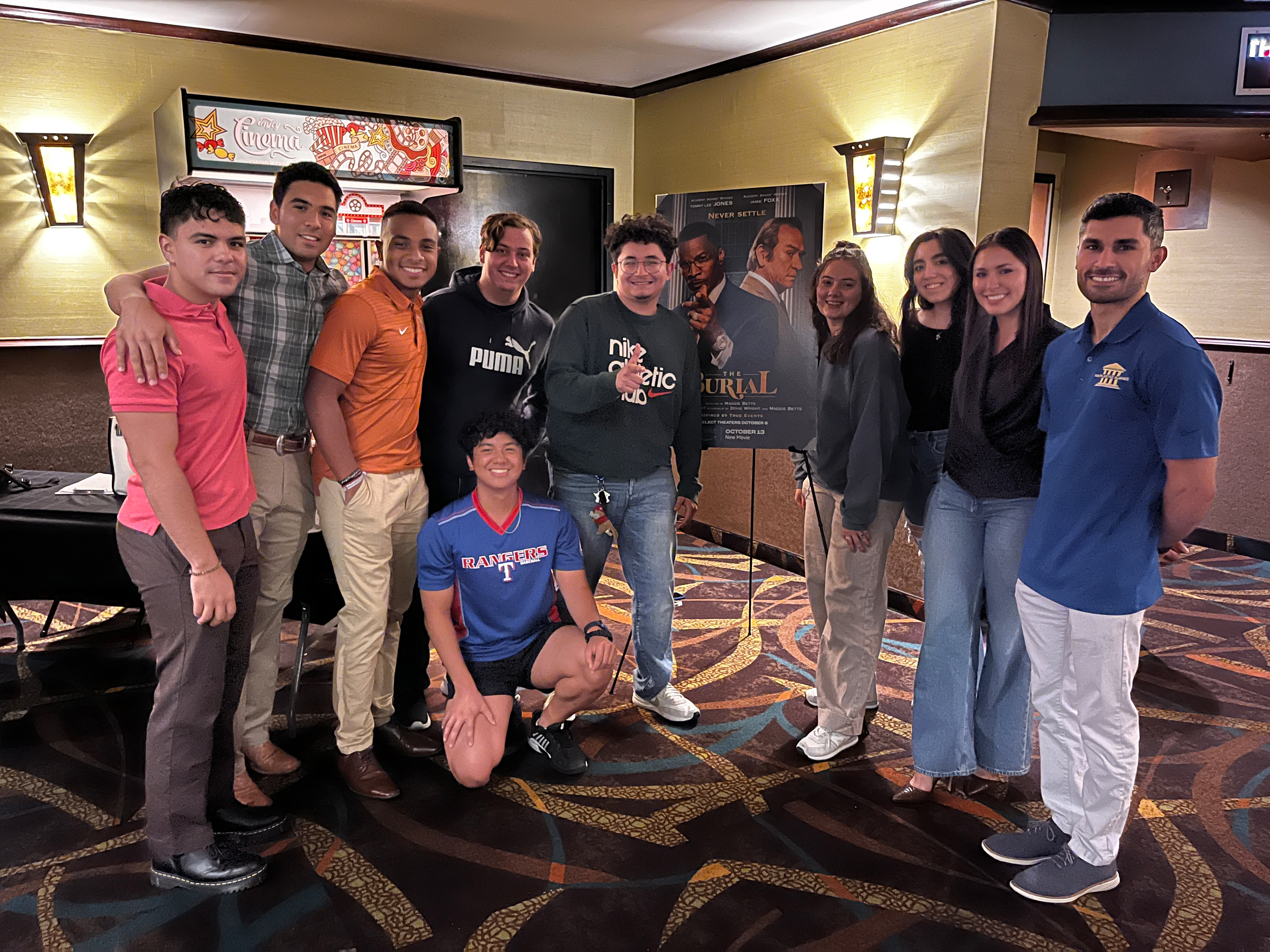
Photo Credit: Armin Salek
When thinking back on how he started the high school legal clinic, Armin says, “I saw the students’ dedication and contributions in person, and it was clear to me that I could trust them to work under my license.” So, when Armin engages Bar Associations, rather than having them deploy lawyers to give standard presentations to classrooms of sleepy students, he shifts their engagement so that they can see young people as powerful. Instead of a PowerPoint lecture, he asks attorneys to share their own stories of why practicing law is meaningful and to invite students to share how the law is impacting their lives. Coach a mock trial team, he advises them, until you find yourself saying, “Wow, these kids are good!” Pitch in to help at the student-run clinics or get firms to sponsor a summer fellowship for young scholars. Armin feels that one of his greatest successes is having changed the minds of many legal professionals, who now see the impact of investing in diversity at an early stage -- before students even think about college.
Next, Armin plans to be in at least 20 school districts across Texas with support from three law schools. Each school in the network will offer weekend community legal aid clinics once a month, and at least 100 of the participating young people will earn stipends of $1,000 per summer for their participation. In ten years, Armin envisions law courses being the norm in every Title I School in Texas, while spreading across the country as on-campus legal aid clinics and “schoolhouse lawyers” become as ubiquitous as on-campus social workers.
We’re not there yet, but Armin is seeing the pieces fall into place. Whenever he hears someone opine about the merits of a mandatory year of service, Armin is quick to interject that that’s what the full four years of high school should look like, where students use their Spanish skills to help their neighbors or their math skills to support a local farm, during school hours and not as an extracurricular or for extra credit. And when someone suggests we introduce STEM education earlier, Armin tells them that it’s also never too early to learn about legal careers. Legal literacy can come earlier and be made far more relevant, youth-led, and practical. The power students draw from acquiring legal knowledge and applying it on behalf of their communities can alter the course of their lives and their careers.
THE PERSON
Armin moved to the U.S. from Iran at the age of five when his parents received a diversity lottery visa. His family story suddenly changed, he says, when they diverted from the path of government restrictions, mandatory service in the Iranian army, and a lack of economic opportunity to their lucky shot at charting a new family story in the U.S.
Making the most of this opportunity weighed heavily on young Armin. In school, he was focused on getting perfect grades, but his heart wasn’t in it. He thought maybe his calling was to be the class clown, but he wasn’t funny enough to pull that off, either. Then, as part of a service requirement for a leadership class in middle school, he was responsible for cleaning up the yard of an elderly man who had just lost his spouse. Armin took this very seriously. He vividly remembers thinking, “This is authentic, this is meaningful, this is impactful.” While his peers had similar experiences, he was struck by how much it really motivated him. From this very early age, he settled on a truth that became a life guide: That everyone comes alive when they have a chance to serve somebody else. Armin believes that “many won’t be motivated by grades or family expectations, but all enjoy and are inspired by a chance to serve their neighbors.”
His own commitment to serving his community led him to law school, to getting his teaching certification, to launching the student-staffed legal clinic at Akins High School, and now, to sharing his innovative legal curricula. He’s been recognized by his peers as Austin ISD High School Teacher of the Year for 2020 and Texas Outstanding Young Lawyer of the Year for 2021, while also receiving other accolades and increasing support for his contributions. He has honed his skills in curriculum writing, partnership development, youth empowerment, and community engagement, and -- via Youth Justice Alliance, the non-profit that he founded and leads -- he has developed a vehicle to spread this work around the country.